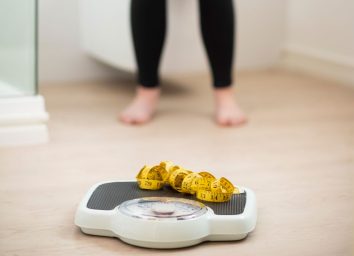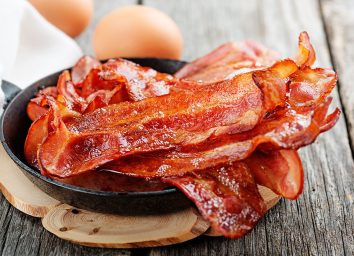Dinner Habits That Are Shortening Your Life, According to Science

Researchers say that habits account for about 40% of our daily behaviors. That means habits wield a good bit of influence over our lives, for good or bad. When it comes to eating, we’re certainly creatures of habit. So, let’s examine our evening meal routine. Are you guilty of these unhealthy dinner habits that can impact your health? Read on, and for more healthy tips, be sure to check out our list of 15 Underrated Weight Loss Tips That Actually Work.
You don’t plan out meals.
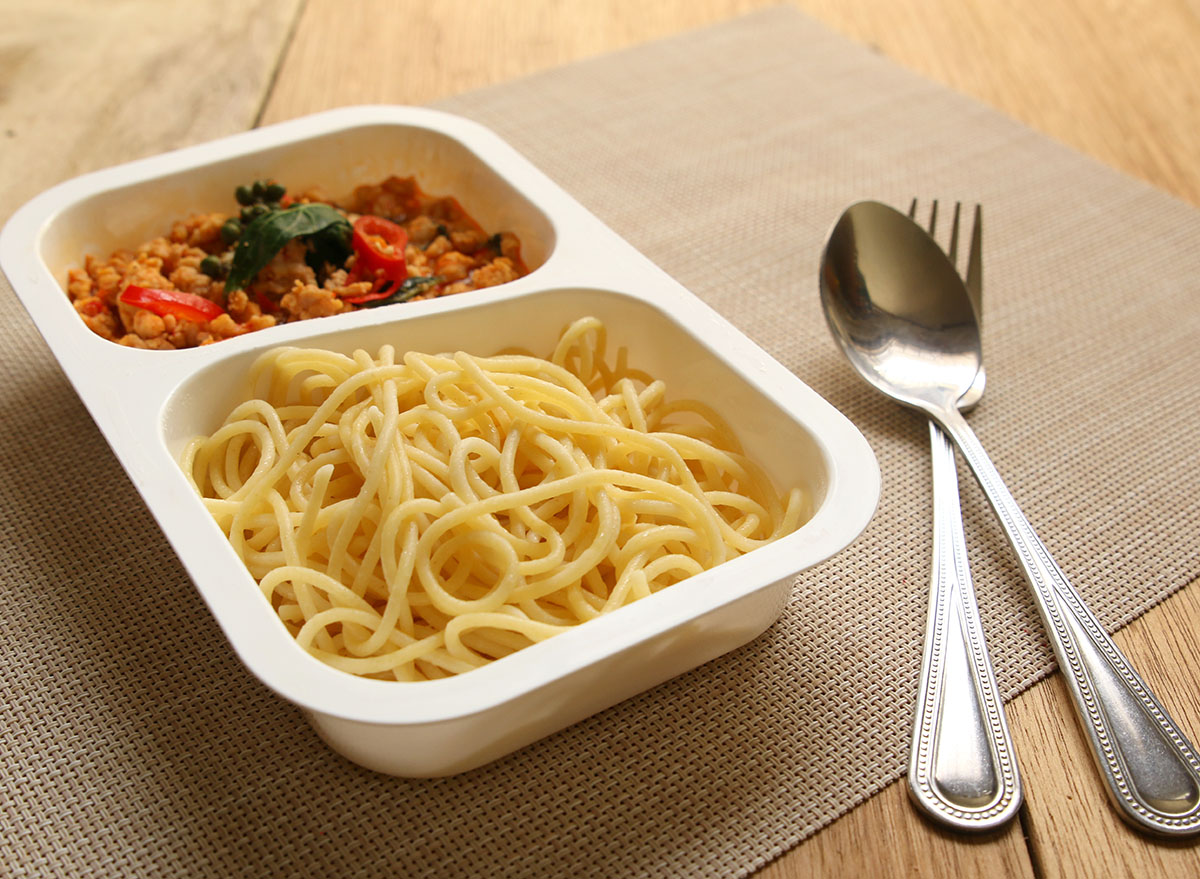
If you don’t have a meal plan, you’ll likely end up either ordering out or relying on highly-processed frozen or canned foods. A 2016 Harvard study revealed that people who regularly cooked at home had a lower diabetes risk than those who rarely cooked at home. The study by researchers from Harvard T.H. Chan School of Public Health looked at dietary and health data from 100,000 male and female health professions and found that people who ate up to 14 homemade lunches or dinners weekly had a 14% lower risk of developing type 2 diabetes than those who ate six or fewer homecooked meals.
Don’t have a meal plan? Get started with one of these 11 Best Meal Planning Apps for Weight Loss.
You always have a cocktail before dinner.

Making a habit of kicking off every dinner with a cocktail not only preloads your meal with extra calories, but it also stimulates appetite, say researchers who call the phenomenon the “apéritif effect.” Studies show that even moderate alcohol consumption spurs hunger and a specific desire for savory foods. In one study in the journal Appetite, 24 men were randomly given either a vodka and orange juice or orange juice alone before a meal. It turned out that those given the alcohol consumed 11% more total food than the juice drinkers. What’s more, the screwdrivers turned up the volume of fatty foods the men ate by 24%. For more reasons to skip the before-dinner drinks, here are the Ugly Side Effects of Drinking Alcohol Every Day, According to the Mayo Clinic.
You don’t drink water before eating.

Being dehydrated can lead to all sorts of negative outcomes: from headaches to constipation, fatigue to kidney stones, and more. More seriously, being dehydrated can make the outcome of having a stroke much worse, according to a study in BMC Cardiovascular Disorders. Then there’s possible weight gain and poor digestion.
Put your own water drinking practices under the microscope. Not only should you be drinking water during every meal, you should drink a glass of water before you take your first bite, says nutritionist Ilana Muhlstein, RD, author of You Can Drop It! How I Dropped 100 Pounds Enjoying Carbs, Cocktails & Chocolate—and You Can Too! Drinking water before eating is one of the first principles of her diet plan.
“Water First is all about taking advantage of the simplest-yet perhaps the most powerful—a form of nutrition we have and the secret weapon for dropping pounds,” says Muhlstein.
Here’s What Happens To Your Skin When You Drink Water Every Day.
You microwave your food in plastic.
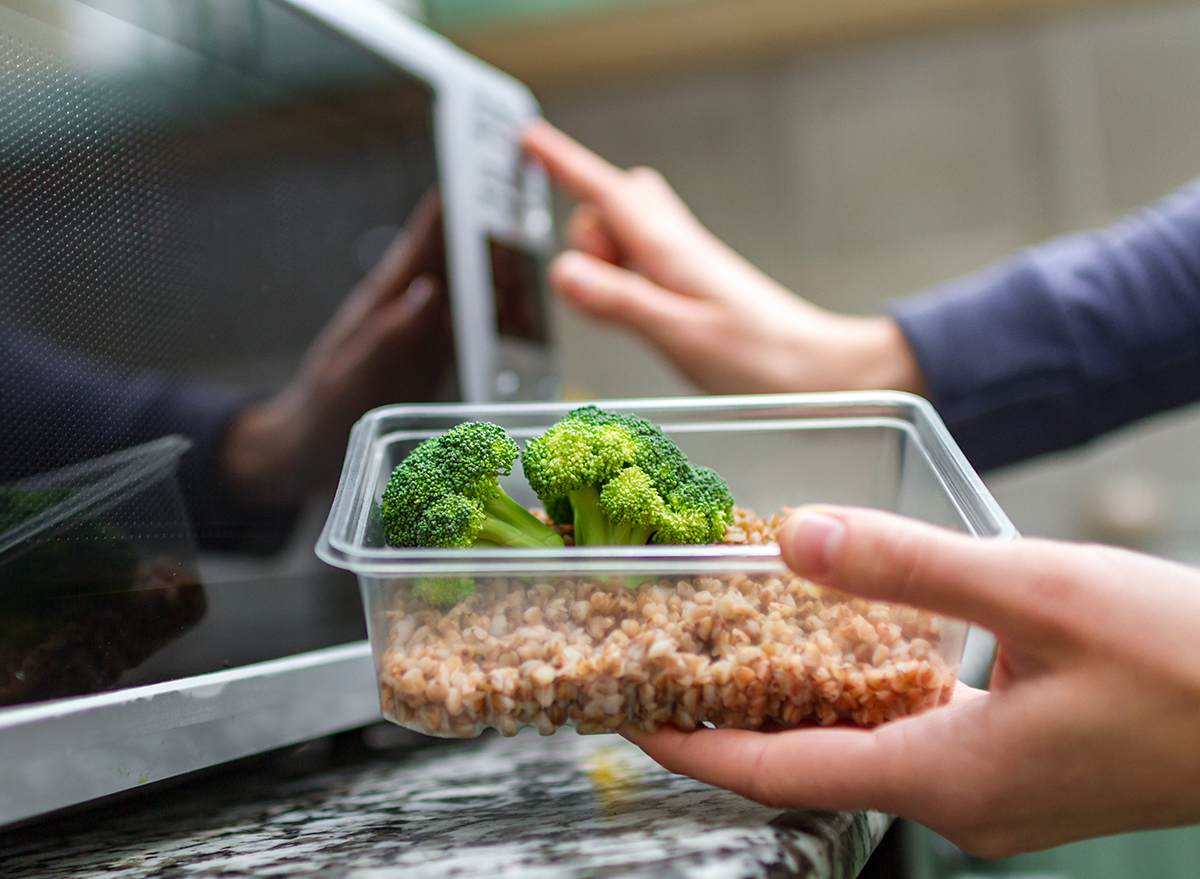
If you make a habit of wrapping your food in plastic wrap or placing it in plastic containers and then microwaving it to heat, you could end up ingesting unhealthy chemicals. Non-microwave safe plastic containers, including takeout containers, may leach BPA and phthalates into the food, especially if the food is fatty, like meats and cheeses. BPA (bisphenol A) and phthalates are suspected “endocrine disruptors,” which mimic hormones and may disrupt healthy cells.
“Even though single exposures to a specific chemical are small, if they occur repeatedly over long periods of time, their effects may add up, leading to a variety of adverse health outcomes down the road,” Harvard professor of reproductive physiology Dr. Russ Hauser told Harvard Health Publishing. “Furthermore, and most importantly, we are exposed to many chemicals simultaneously (i.e., chemical mixtures) that may have additive adverse effects.”
You eat a lot of salty prepared foods.
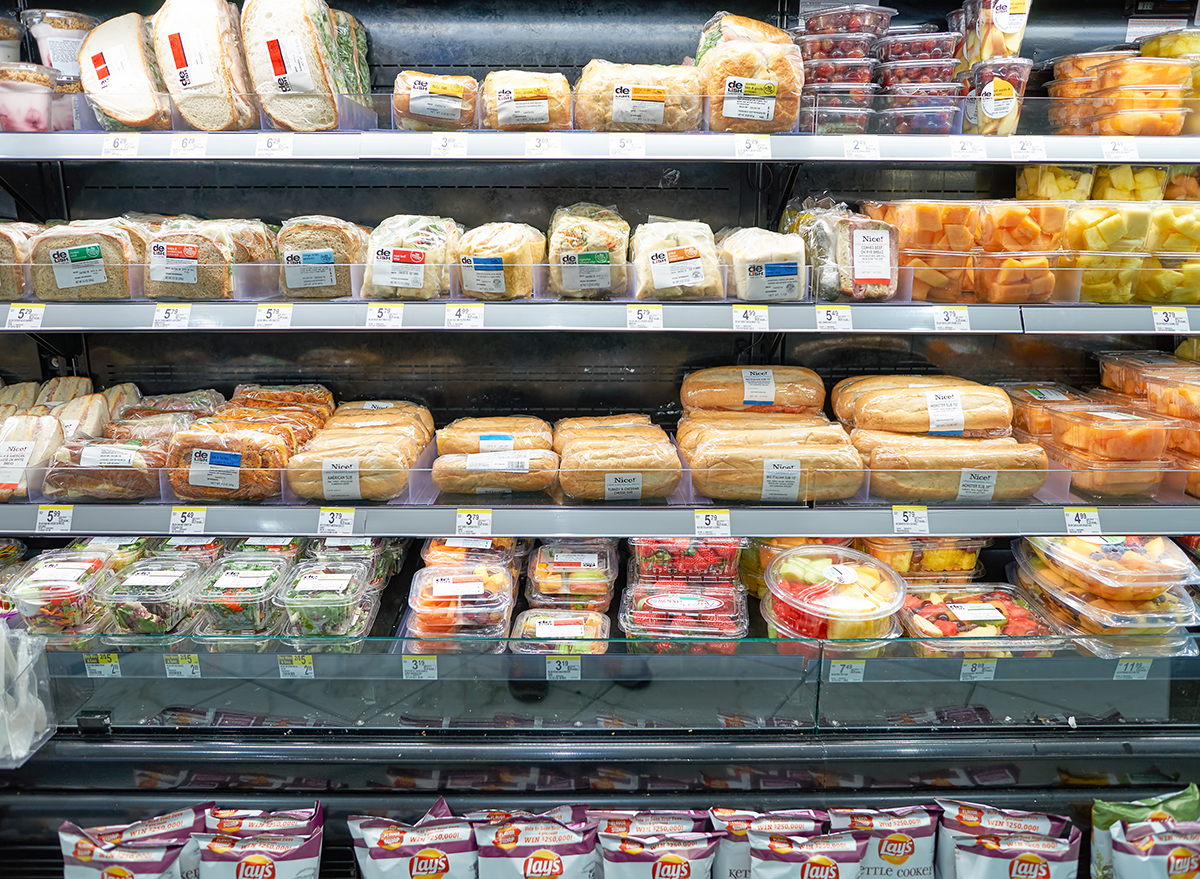
Maybe you never reach for the salt shaker. But if you make a habit of eating out or having a lot of prepared foods for dinner, you’re probably consuming way too much sodium. More than 70% of dietary sodium comes from eating packaged and prepared foods, not from salt added to food when home cooking or eating, says the U.S. Food & Drug Administration. High sodium intake can raise blood pressure, one of the leading risk factors for heart disease and stroke in the U.S., according to the Centers for Disease Control and Prevention and the leading risk factor for global disease, according to the World Health Organization.
Here’s a related heart disease-promoting habit to kick: Fried Foods. To find out why, read Dangerous Side Effects of Eating Fried Foods, According to Science.
Your dinner rarely includes vegetables.
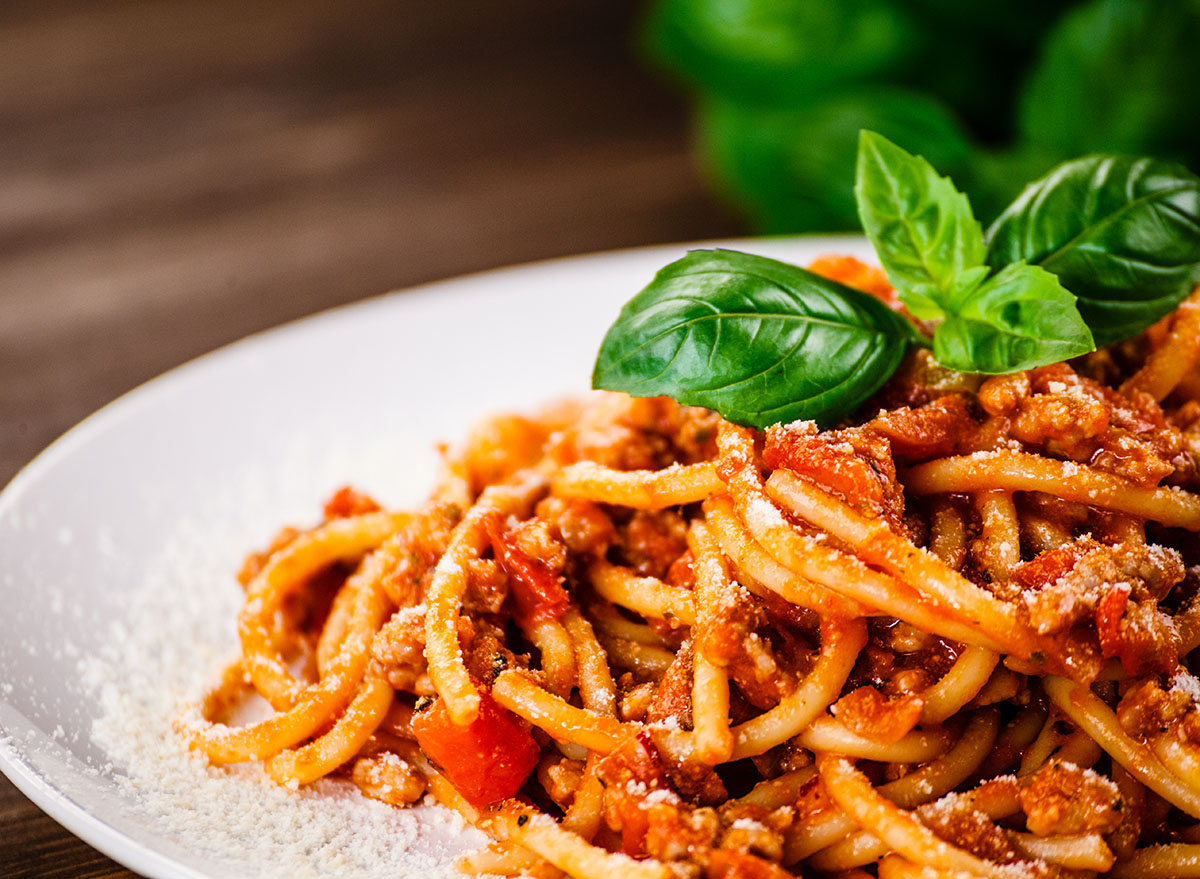
Take a look at your dinner plate tonight. What do you see? If you don’t notice an abundance of vegetables and fruits, you could be seeing cardiovascular problems in your future, research suggests.
Consider a study presented at the American Society for Nutrition’s annual conference in 2019, which analyzed diet data from 113 countries alongside research on causes of death. The researchers found that each year nearly 1 in 7 people worldwide die from heart disease and stroke caused by not eating enough fruit and about 1 in 12 die from cardiovascular disease from not consuming adequate amounts of vegetables. When you fill your plate with fruits and vegetables, the good-for-you stuff tends to elbow out less healthful fare like red meats and low-fiber starches. The American Heart Association recommends eating 4 servings of fruits and 5 servings of vegetables every day.
You can make better choices at dinner by following these simple guidelines.
Your dinner rarely includes protein.
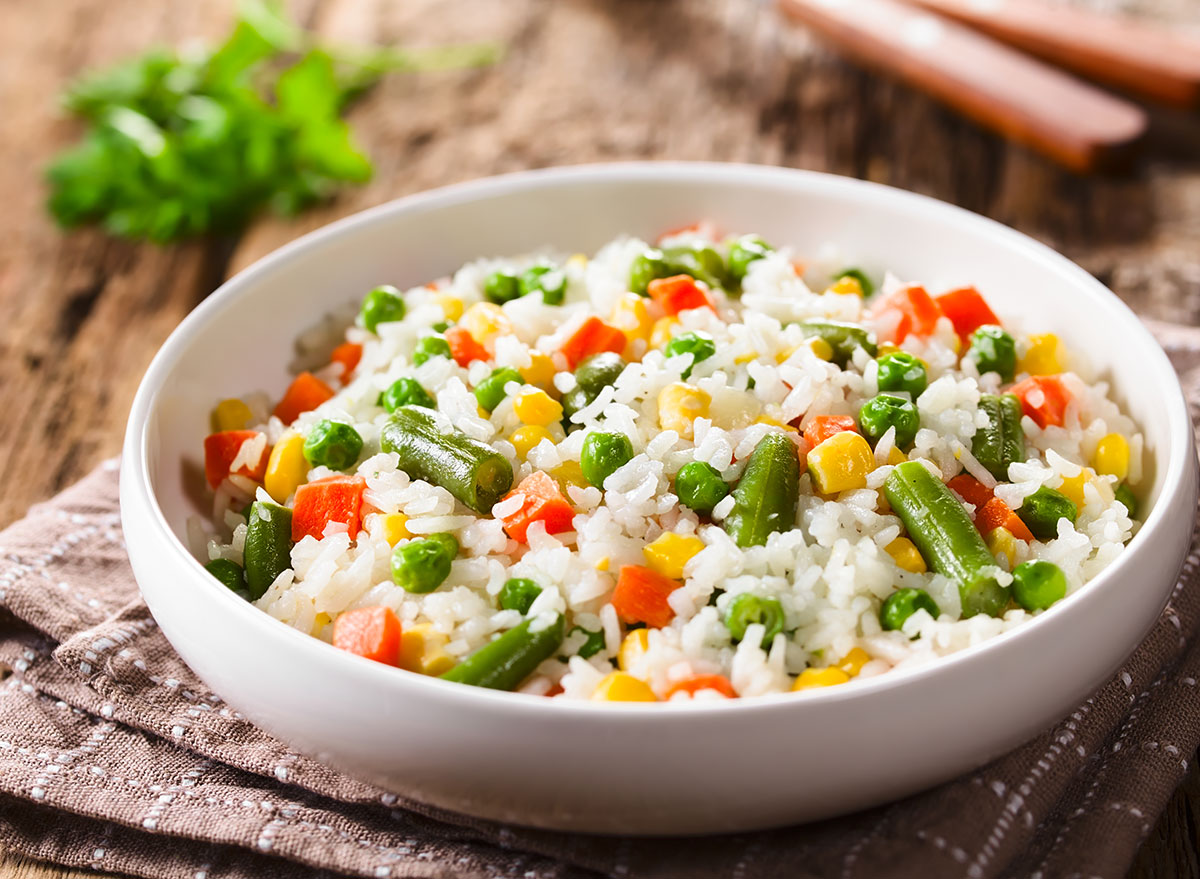
Pasta every night might be easy, but it doesn’t provide you with the 50 to 175 grams of protein most of us need daily to build and maintain muscle and keep our appetites in check. Many studies have demonstrated that protein is more satiating than either carbohydrate or fat. One analysis of 10 studies by researchers at Purdue University, for example, found that subjects whose meals included inadequate amounts of protein became hungrier and ended up eating more than when their meals included the recommended amount or more of protein. The results suggest that dinners lacking protein may lead to increased hunger after dinner and eating late at night, which, in turn, could result in significant weight gain.
You eat too fast.
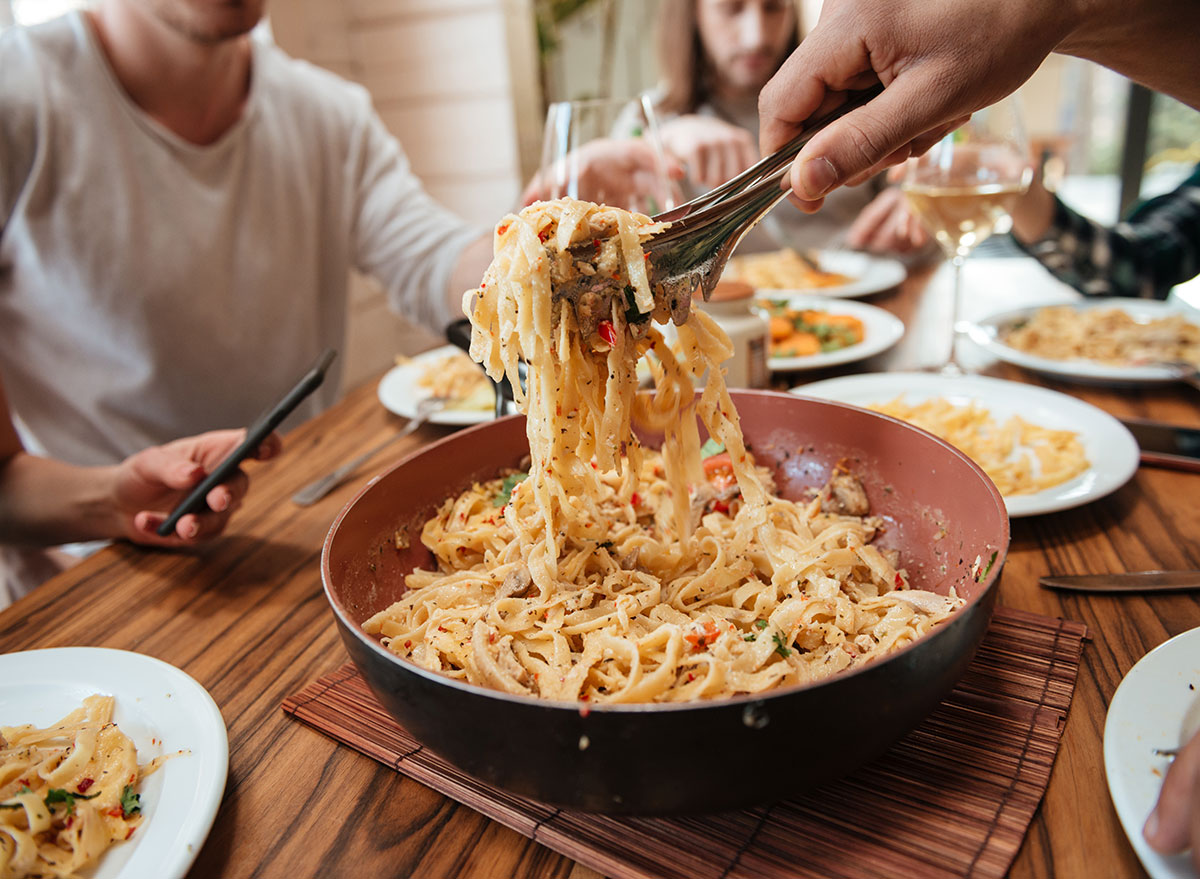
Wolfing down your dinner may make you fat and even harm your heart, according to research presented at an American Heart Association scientific conference in 2017.
Japanese researchers evaluated 642 people by their eating speed and found that the fast eaters were 11.6% more like to have metabolic syndrome, a cluster of disorders including high blood sugar, high blood pressure, and high triglycerides, than normal and slow eaters. Fast eating was also associated with more weight gain.
Fast eating and not chewing adequately can also affect the number of nutrients you’re getting from even healthy food.
“When we eat too quickly, we may not be able to absorb and assimilate nutrients,” says nutritionist Cassidy Gunderson, PhD, owner of Spiro Health & Wellness in Salt Lake City. “Our mouths are very smart; the mastication process is incredibly important. One study found that chewing almonds 40 times versus 10 times significantly increased absorption of nutrients.”
You end dinner with a big dessert.
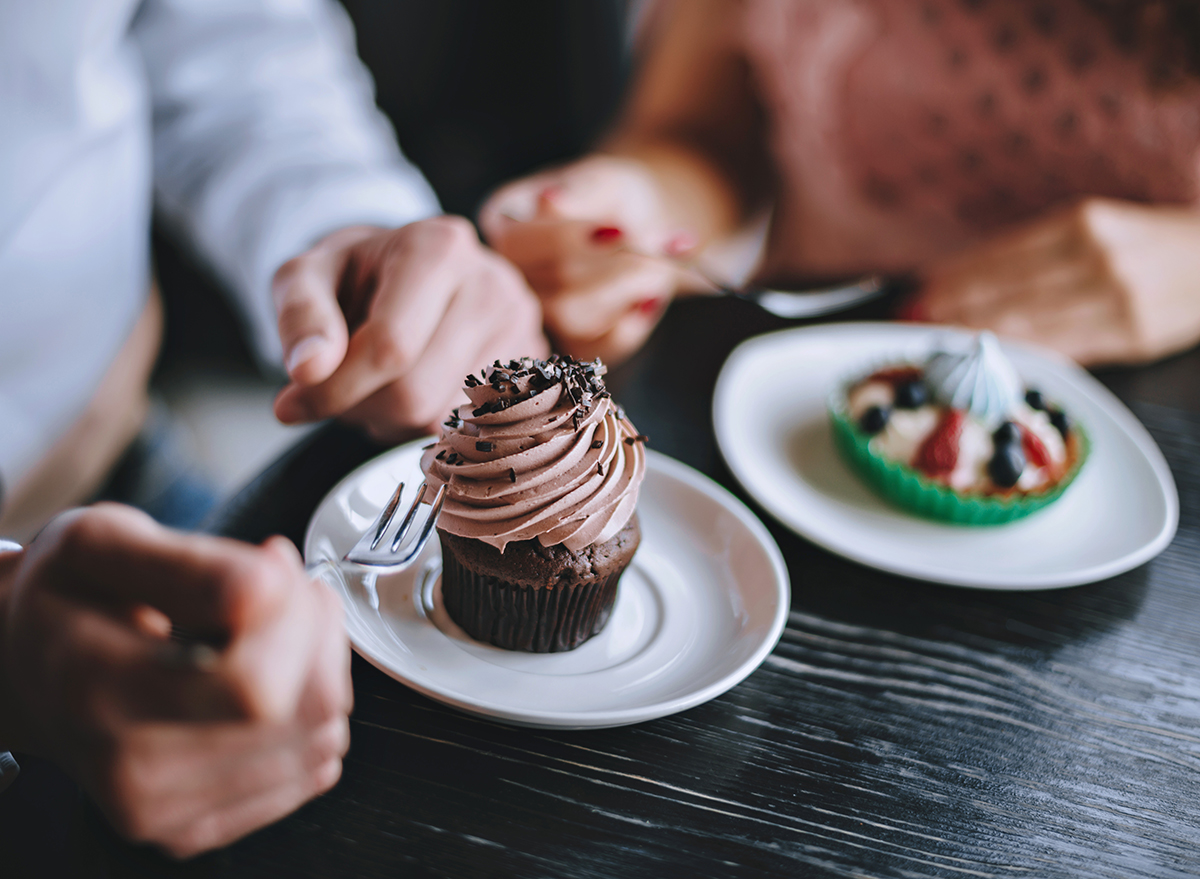
A little something sweet after dinner may provide enough of a psychological reward to keep you motivated to stick to a healthy eating plan. It has worked for many dieters because they don’t feel as if they are depriving themselves. But it doesn’t take a degree in nutrition to know that it can be difficult to limit bites of luscious cake or scoops of ice cream. And many desserts are loaded with calories, sugar, and saturated fat. Eating hefty, sugary desserts every night can pack on pounds, leading to obesity and diabetes. Saturated fats can raise LDL cholesterol and lead to heart disease. In a 2014 JAMA Internal Medicine study following people for 15 years, Harvard researchers found an association between a high-sugar diet and 38% greater risk of dying from cardiovascular disease.
Instead, opt for healthier options like one of these 76 Best Dessert Recipes for Weight Loss.
You stay seated after dinner.

A study by the American Cancer Society published in the American Journal of Epidemiology in 2018 linked sitting for long periods of leisure time and a higher risk of death from 14 common causes of death. The study, which followed 127,554 people who had no chronic diseases for 21 years, showed that those who reported the most leisure time sitting had a higher risk of death from cancer, heart disease, stroke, diabetes, kidney disease, suicide, lung disease, liver disease, peptic ulcer and other digestive diseases, Parkinson’s disease, Alzheimer’s disease, nervous disorders, and musculoskeletal disorders.
Get even more healthy tips straight to your inbox by signing up for our newsletter.
